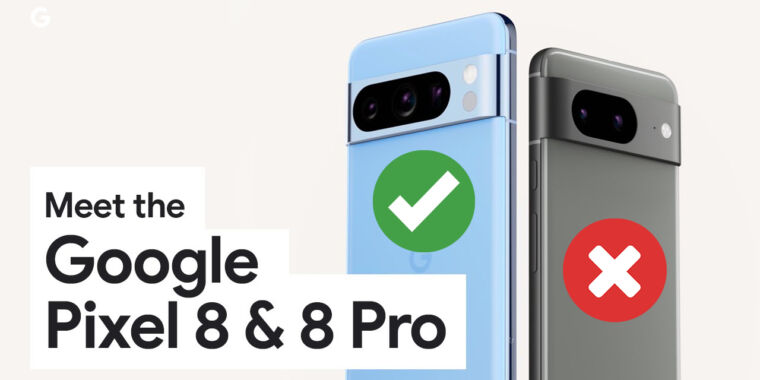Google’s AI Model and Smartphone Compatibility
If one were to believe Google’s promotional narrative, the integration of AI within a mobile device is paramount, with Google’s own AI standing out as the best, readily available on the company’s flagship smartphone, the Pixel 8. However, retrospective analysis of the Pixel 8, launched five months ago, challenges the validity of this claim: Google recently confirmed that its latest AI models are incompatible with the Pixel 8.
During a post-Mobile World Congress Q&A session, Terence Zhang of the Gemini-on-Android team revealed that “Gemini Nano,” the newest AI model by Google, will not be deployable on the Pixel 8 due to hardware constraints. Remarkably, this AI model is operational on the Pixel 8 Pro and, more recently, on the Samsung S24 series, with plans for expansion to high-end devices in the near future.
The intriguing aspect remains the paradox of Gemini Nano functioning on the Pixel 8 Pro but encountering obstacles for compatibility with the Pixel 8 due to purported “hardware limitations.” This raises the question of the precise nature of these limitations, given that both Pixel models share an identical Google Tensor SoC and run similar software, differing primarily in screen dimensions, battery capacity, camera configuration, and RAM capacity.
While the variance in RAM capacity between the Pixel 8 Pro and Pixel 8 may theoretically present processing constraints, the Gemini Nano model is successfully operative on the Galaxy S24, which also boasts 8GB of RAM. Such disparity prompts speculation that Samsung devices might exhibit higher RAM efficiency than Pixel phones, a scenario challenging to substantiate. Alternatively, if distinctions existed between the Tensor 3 chips utilized in the Pixel 8 Pro and Pixel 8, these intricacies remain undocumented.
Divergence from the Original Promise
At the initial Pixel 8 launch event half a year ago, Google instilled a contrasting perception of the Pixel 8 series, projecting it as an embodiment of the pinnacle of AI integration: “Our latest phones bring together so many technologies…They include the very best Android experience, first-of-its-kind camera experiences, and the latest AI advancements from Google.” Both Pixel models incorporate the proprietary Google Tensor 3 SoC, vouched to facilitate the integration of Google’s AI innovations directly to users.
Upon simultaneous launch of two devices, discerning disparities between models can be challenging. Consequently, the delineation between Pixel 8 and Pixel 8 Pro was inadequately articulated, making it challenging to comprehend the substantive variances between the two devices concerning AI processing capabilities or Tensor chips.
Evidence of Communication Ambiguity
Reflecting upon Google’s communication strategy during the launch of the Pixel 8 series reveals inherent ambiguities that contributed to existing consumer bewilderment. Reviewing the launch event retrospectively, hints such as references to the “Pixel 8 Pro’s on-device LLM” suggest potential exclusive AI features within the Pro model, implying a narrative distinct from the initial portrayal.
Clarifying the utility and significance of “Gemini Nano” remains essential for consumers, with inadequate substance available to substantiate its added value. While Google offers a brief overview of features enabled by Gemini Nano, such as enhancing the Google Recorder app or optimizing ‘smart reply’ features, comprehending the necessity of this AI model remains enigmatic. For instance, the capacity for developers to harness Gemini Nano for app development raises little interest in the absence of cross-device compatibility.
Future Implications and Ramifications
These developments potentially steer the discourse towards cloud-based AI solutions, diverging from on-device integrations like Gemini Nano. The exclusion of such innovation from the Google Gemini Chatbot, which operates exclusively in the cloud, underscores a fundamental shift in Google’s strategy towards AI deployment.
The aftermath of this compatibility discrepancy instills apprehension concerning the future trajectory of the Pixel 8 series. In light of Google’s commitment to extended OS support for its devices, witnessing feature reduction due to apparent “hardware limitations” within five months of product launch bears ramifications on consumer trust and product longevity.
Image/Photo credit: source url





